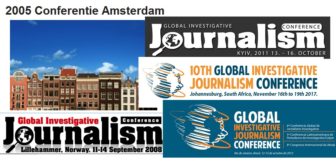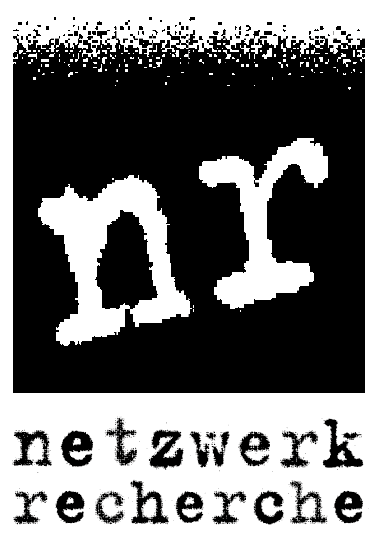 The Global Investigative Journalism Conference is the world’s largest international gathering of investigative reporters. The conferences are held every two years. Since our first gathering in Copenhagen in 2001, we have brought together more than 7,000 journalists from 130 countries. Later conferences have been held in Copenhagen (2003), Amsterdam (2005), Toronto (2007), Lillehammer (2008), Geneva (2010), Kiev (2011), Rio de Janeiro (2013), Lillehammer (2015) and Johannesburg (2017).
The Global Investigative Journalism Conference is the world’s largest international gathering of investigative reporters. The conferences are held every two years. Since our first gathering in Copenhagen in 2001, we have brought together more than 7,000 journalists from 130 countries. Later conferences have been held in Copenhagen (2003), Amsterdam (2005), Toronto (2007), Lillehammer (2008), Geneva (2010), Kiev (2011), Rio de Janeiro (2013), Lillehammer (2015) and Johannesburg (2017).
The GIJCs are overseen and co-sponsored by the Global Investigative Journalism Network (GIJN), in partnership with its member organizations. The conferences are widely credited with playing a key role in the rapid global expansion of investigative reporting over the past 18 years. By focusing on skills and training, they have helped spread state-of-the-art investigative reporting, data journalism, and cross-border collaboration around the world.
Journalists who have attended the global conferences have returned home and made a major impact on such issues as corruption, health care, and the environment. They have gone on to found investigative centers, direct I-teams at major newspapers and television stations, collaborate with colleagues worldwide, and train the next generation of investigative reporters.
This year’s Global Investigative Journalism Conference (GIJC19) is brought to you by GIJN, Netzwerk Recherche and Interlink Academy.
Global Investigative Journalism Network (GIJN)
![]() The Global Investigative Journalism Network is the world’s premier international association of investigative reporting organizations. The Network’s membership comprises 182 nonprofits in 77 countries. GIJN’s mission includes sponsoring global and regional conferences, training, providing resources and advice, and promoting best practices in investigative and data journalism. The GIJN Help Desk has provided assistance to over 7,000 journalists in 100 countries, while GIJN’s regional editors spread the latest news in eight languages a day. GIJN was founded in 2003 when more than 300 journalists gathered for the second Global Investigative Journalism Conference in Copenhagen. Membership is open to non-profit media organizations, or their equivalent, that support investigative or data journalism.
The Global Investigative Journalism Network is the world’s premier international association of investigative reporting organizations. The Network’s membership comprises 182 nonprofits in 77 countries. GIJN’s mission includes sponsoring global and regional conferences, training, providing resources and advice, and promoting best practices in investigative and data journalism. The GIJN Help Desk has provided assistance to over 7,000 journalists in 100 countries, while GIJN’s regional editors spread the latest news in eight languages a day. GIJN was founded in 2003 when more than 300 journalists gathered for the second Global Investigative Journalism Conference in Copenhagen. Membership is open to non-profit media organizations, or their equivalent, that support investigative or data journalism.
Netzwerk Recherche
Netzwerk Recherche (nr) is the German association of investigative journalists. It was founded in 2001 with the aim to improve the quality of media coverage using investigative methods of journalism. nr is an independent nonprofit association and counts around 900 members.
is the German association of investigative journalists. It was founded in 2001 with the aim to improve the quality of media coverage using investigative methods of journalism. nr is an independent nonprofit association and counts around 900 members.
The association’s annual conference is one of the biggest events for journalists in Europe. Additionally, Netzwerk Recherche hosts several other conferences and seminars which focus on a certain aspect of reporting, e.g. fact-checking, freedom of information or undercover investigations. The participants improve their expertise during these workshops and also discuss current media issues.
In order to facilitate investigative journalism, the association awards research grants to journalists.
Interlink Academy for International Dialog and Journalism
 The Interlink Academy for International Dialog and Journalism strives to professionalize journalism and advance freedom of the media around the globe. We develop and organize international exchange programs and professional training for journalists from all spheres worldwide. Established in 2014, it is not for profit and serves the global community.
The Interlink Academy for International Dialog and Journalism strives to professionalize journalism and advance freedom of the media around the globe. We develop and organize international exchange programs and professional training for journalists from all spheres worldwide. Established in 2014, it is not for profit and serves the global community.
Participants in our programs are given the opportunity to become part of an international journalists’ network and improve the tools of their trade as they prepare for the digital future. The future belongs to well-educated, globally networked journalists who work to high quality standards – and who will in turn guarantee the future of free speech and freedom of the press. It is Interlink’s mission to contribute to this.
Anti-Discrimination and Harassment
The Global Investigative Journalism Conference is a strong believer in diversity and welcomes participants regardless of race, color, creed, religion, gender, sexual orientation, national origin, ancestry, citizenship status, or disability. Discrimination, sexual harassment, or other inappropriate conduct will not be tolerated and will be grounds for expulsion from the conference.
